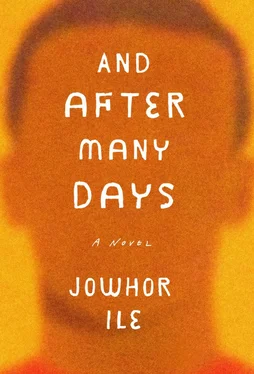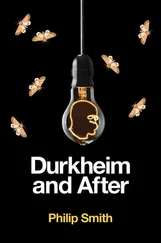But none of these mattered anymore, he thought as he saw Dr. Idoniboye walk into the flat. Ma’s prayers hadn’t saved her, regardless of where the commas lay in the sentence.
—
Dr. Idoniboye said Bendic had called him once he heard about the crash. They knew everyone would be worried about them. “They got on an earlier flight. Just before the one that crashed.” He said Bendic had been trying the phone lines in Uncle Tam’s department at the university all afternoon but couldn’t get through.
“Thank God!” Uncle Tam said, looking at the children. Paul put his hand on his head, gave a big sigh of relief, and sat down on the wooden arm of the sofa. Bibi still looked drained, though her eyes had woken up.
“It’s a disaster,” Dr. Idoniboye said to Uncle Tam. “Where is your wife?”
“We are expecting her any minute now,” Uncle Tam said.
“Your father said I should tell you they are fine,” Dr. Idoniboye said again, casting his glance on all three faces. “We are so thankful to God, all of us.”
The children left the sitting area, and Ajie could still feel his heart thumping, just as hard as it had when Dr. Idoniboye walked through the door and he thought the worst had happened. Paul opened the door to the balcony and stepped out, and the faint noise of the street filtered in. Ajie and Bibi joined Paul outside, looking down on the street below.
Ajie started feeling ill and went back inside and sat at the dining table. He put his head down on the table, resting his head on his crossed arms. He felt the coolness of the Formica on his arm and then leaned closer to rest his cheek on the table.
“I read that the plane simply exploded in air. Did it have faults before takeoff?” Uncle Tam said to Dr. Idoniboye.
“I don’t doubt that it did, but we are hearing all sorts of things,” Dr. Idoniboye said, dropping his voice. “That your president wanted some people on that flight dead.”
“You don’t say.”
“Have you not seen the flight manifest? Over twenty solid Rivers men, wasted. Over twenty! Silenced like that in one day. This state has been set back half a century.”
Uncle Tam was quiet for a while, and then he asked Dr. Idoniboye if he wanted a drink.
“If it is cold,” the doctor said, “I’ll take a bottle of malt, please.”
When Ajie heard this, despite the burning he was starting to feel on his neck and the recent panic about his parents, he had to smile.
If Bibi had been there, Ajie would have winked at her, and Bibi would have rolled her eyes and shaken her head. Bibi was the expert at mimicking guests. The whole range of them: Bendic’s friends, Ma’s schoolteachers, Ogibah people, or the visitors who came with trouble tales, seeking assistance.
There was always the guest’s initial show of refusal when offered a drink, “No no no! I’m not a stranger now. Don’t worry yourself with getting a drink for me.”
Ma would cajole. Bendic would say he wouldn’t have such nonsense, “You must take something.” Then there would be the guest’s meek, feeble surrender, mentioning the drink of choice: “Okay, a bottle of Sprite will do.”
When the children were younger, they played games like Shopkeeper and Customer, Police and Thief, Guest and Host.
Paul would sit in Bendic’s armchair in the parlor with his back straight, his legs crossed like a big shot, with a newspaper on his lap.
“ Kpoi kpoi kpoi!” A knock on the door.
He wouldn’t stand up to open it. He would simply say, “Come in,” not even looking up from the newspaper. Then Bibi would sashay in wearing some of Ma’s headgear, a stiff jacquard rolled and fashioned into this towering thing that was balanced on her head like a satellite dish. Bibi would move slowly with the double wrapper tied around her waist and the red George wrapper or asoke thrown over her shoulder for extra’s sake.
Taking off her imaginary sunglasses, she would squint into the room. Paul would get up and stretch his hand in the most restrained and respectable manner; then he would offer her a seat. Pleasantries would be exchanged: How is the family? What about the children? And work?
Bibi wouldn’t immediately take the seat that had been offered to her. Like a proper thick madam, she would survey the chair first, adjust the massive falling-down sleeves of her blouse, then finally sit down, resting her big handbag beside her. Then it would be left to Paul, the confident and caring host, to fold away his newspaper and say, “So, madam, what can I offer you?” rubbing his hands together.
They would go through the normal rigmarole of “Oh, no, don’t bother.” “But you have to take something.” She would concede to a bottle of malt. Coke, Fanta, and Sprite were for kids only, or what poor people offered their adult guests.
Paul would raise his voice. “Okon! Where is this boy?”
And Ajie would appear from the kitchen, a houseboy in shorts and singlet, fidgety and ostensibly stupid.
“Yes, Oga,” Ajie would reply, falling forward, almost. “Wetin Oga need?”
“Please check on top of the fridge for some cash and buy this lovely lady a cold bottle of malt. Guinness for me, please, and some groundnuts, too.”
Bibi would cross her legs this way and then that way, like a businesswoman who had just flown in from Lagos. As they do in television dramas, she would take a deep breath and then ask, “So, sir, how about the contract we discussed over the telephone?”
Here in Uncle Tam’s sitting room was Dr. Idoniboye, not going through the ritual of refusal but, rather, accepting and naming his drink of choice once the offer was made: “If it is cold, I’ll take a bottle of malt, please.”
Barisua set down the bottle and a gleaming tumbler on a side stool. She opened the drink but left the cork sitting on the mouth. “So you are telling me the head of state is responsible?” Uncle Tam asked again, in hushed tones, now that the drink was served.
“That is what we have heard,” Dr. Idoniboye replied, in lowered tones, too, as though someone might overhear them. “Some people on the flight had been invited to Lagos for some government function. Only a blind man can’t see it.”
Auntie Leba returned later that afternoon with a copy of the manifest of the doomed flight, now in circulation.
“Tam!” she called out as she got in. “Tam come and see o!”
They had friends on the flight.
The next morning after they finished their chores, Barisua walked across the living room where Paul, Bibi, and Ajie were sitting and turned off the radio.
“What is the meaning of that?” Paul leaped to his feet and turned the radio back on. He surprised himself and the rest of them.
Maybe this morning she only wanted to tease Paul. She would later chide him for his lack of humor, laugh, and turn the radio back on. But now Paul had leapt halfway across the room, shouting, “What is the meaning of that?”
Paul and Barisua were exactly the same height. As they stood staring each other in the eyes, Ajie wondered who was the older of the two. Barisua always acted like she was. She cooked, she cleaned, she went to the market, she woke before everyone else, she followed Auntie Leba’s instructions and then laid them down as rules for the three of them. Ajie saw that Bibi wanted to intervene but was holding herself back. From the day they had arrived in that house, Bibi had bound herself to Barisua — faced with her own family of two boys and a fellow girl who was a stranger, she had chosen the girl.
“Paul—” Bibi started, trying to play the mediator.
“Shut up!” Paul shouted at her, looking at Barisua. Barisua walked back to the radio and turned it right off. Paul turned it back on.
Читать дальше












